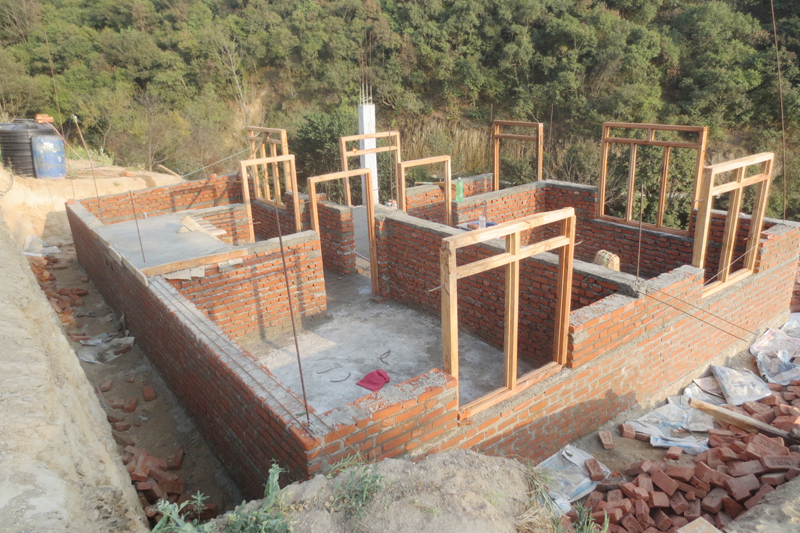Many houses being rebuilt haven’t followed building codes
Kathmandu, April 19
A large number of individual houses under reconstruction have failed to be certified for the second instalment of the government grant as these houses have not complied with the safe building codes. According to National Reconstruction Authority (NRA), around 25 per cent or 3,336 houses out of 13,331 houses that had applied for the second trance in 14 quake-hit districts have been disqualified for the second tranche of government’s aid for house reconstruction.
Those who have not complied with the safe building codes will be deprived from the government grant, according to Govinda Raj Pokharel, CEO of NRA. “To address this situation, NRA has mobilised more number of engineers and is conducting mason training programmes.”
NRA has mobilised 1,000 engineers on-site and trained 36,000 masons after the earthquake for the purpose of reconstructing individual houses. According to Pokharel, beneficiaries have to rebuild their houses in consultation with the engineers to receive the government grant.
It is almost two years since the devastating earthquake of April 25, 2015 struck. However, only 23,000 individual houses have been rebuilt and reportedly 50,000 are under construction at present. A total of 626,695 individual households are listed as beneficiaries to receive the government’s reconstruction grant.
The pace of individual house reconstruction is still very slow because of lack of sufficient income source of victims, shortage of trained masons, and dearth of consultations from engineers, according to NRA.
Owing to all these challenges, the NRA has recently unveiled multiple designs of low-cost houses that can be built using local raw materials in rural areas, as per Pokharel. “The recently unveiled designs are cheaper and houses can be rebuilt with the government grant worth Rs 300,000. We expect house reconstruction to gather pace.”
The Post Disaster Recovery Framework (PDRF) has envisioned to complete reconstruction of individual houses within three years and entire reconstruction works — schools, health posts, heritage sites, drinking water facilities, government buildings, bridges and roads ravaged by the earthquakes — within five years.
However, the slow pace of reconstruction has raised questions on timely completion of the reconstruction works.
“NRA is only a coordinating agency. It has to depend on concerned ministries to execute the post-earthquake reconstruction works,” said Pokharel. “We are doing our best to facilitate and expedite the post-quake reconstruction works.”
I/NGOs can give support of up to Rs 350,000
KATHMANDU: The National Reconstruction Authority (NRA) has allowed international and national non-governmental organisation (I/NGOs) to provide support of up to Rs 350,000 for rebuilding individual houses and they too have to follow the same grant modality like the government.
“However, we have allowed I/NGOs to provide additional support of up to Rs 50,000 to the beneficiary houses, which are going to be built with their support,” said Govinda Raj Pokharel, CEO of the National Reconstruction Authority.
NRA has allowed I/NGOs to provide more support than the government to beneficiary households following their request that the aid amount fixed by the government is insufficient.
I/NGOs have distributed first instalment of the housing reconstruction aid to 9,319 households so far.






